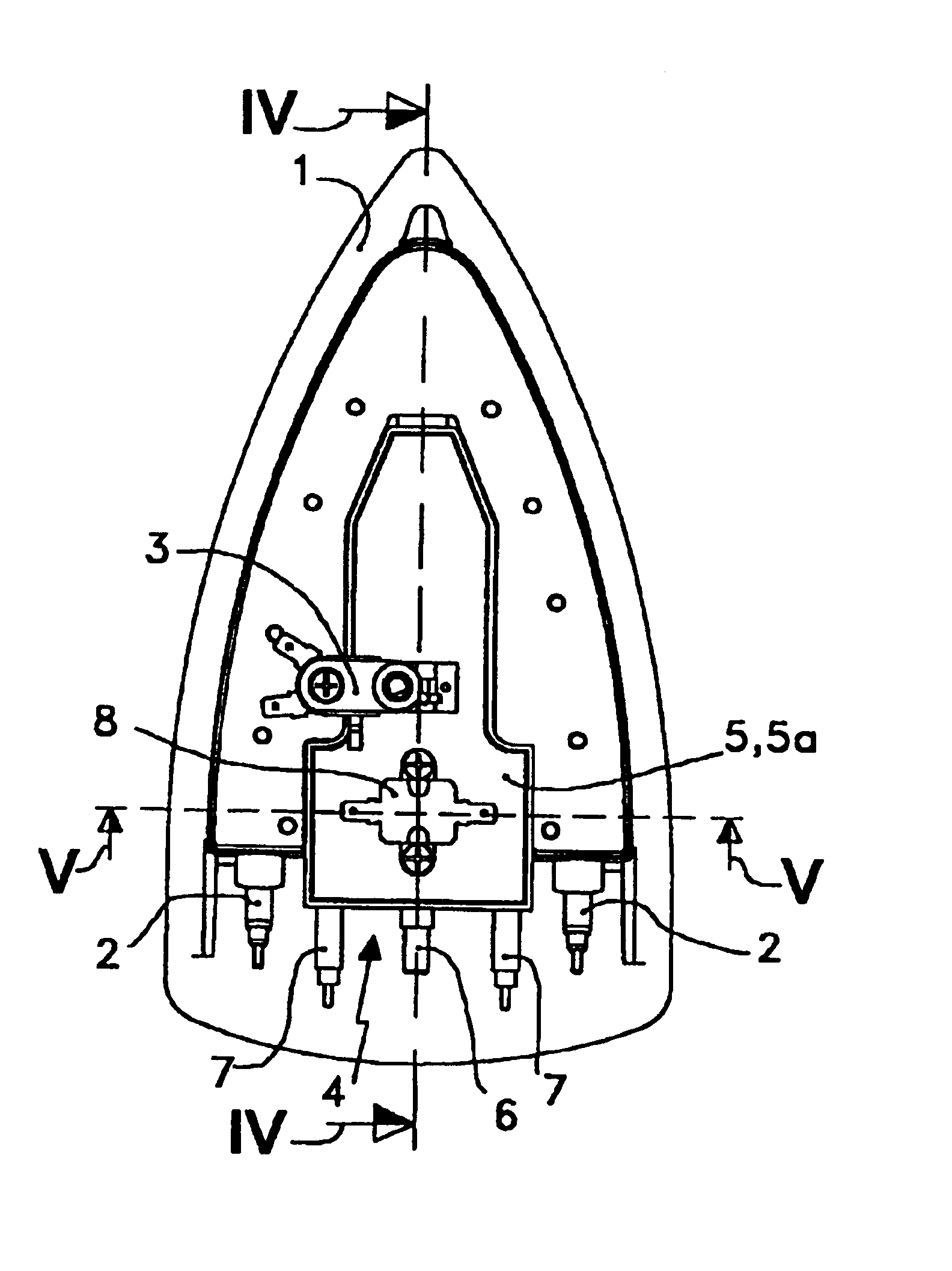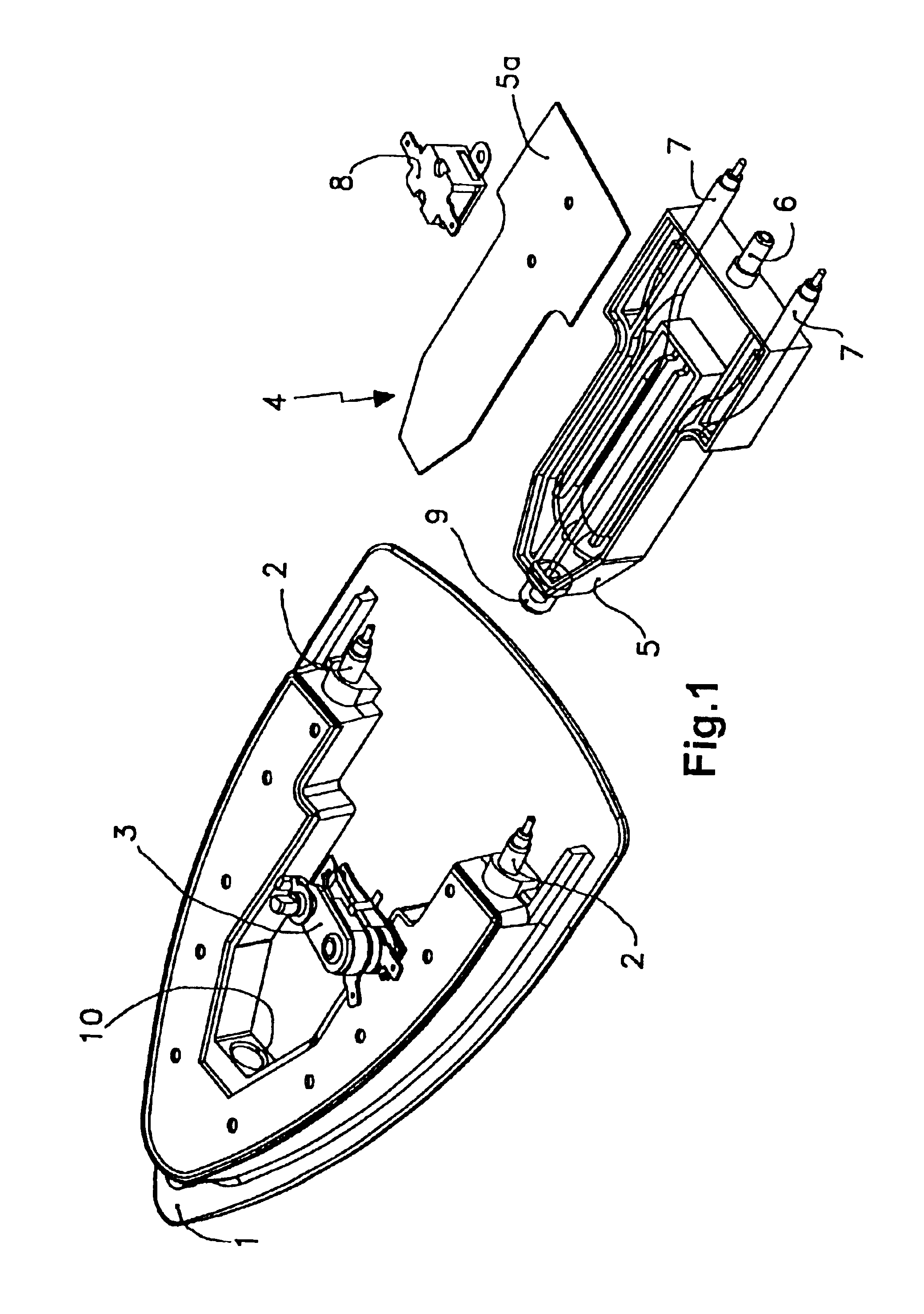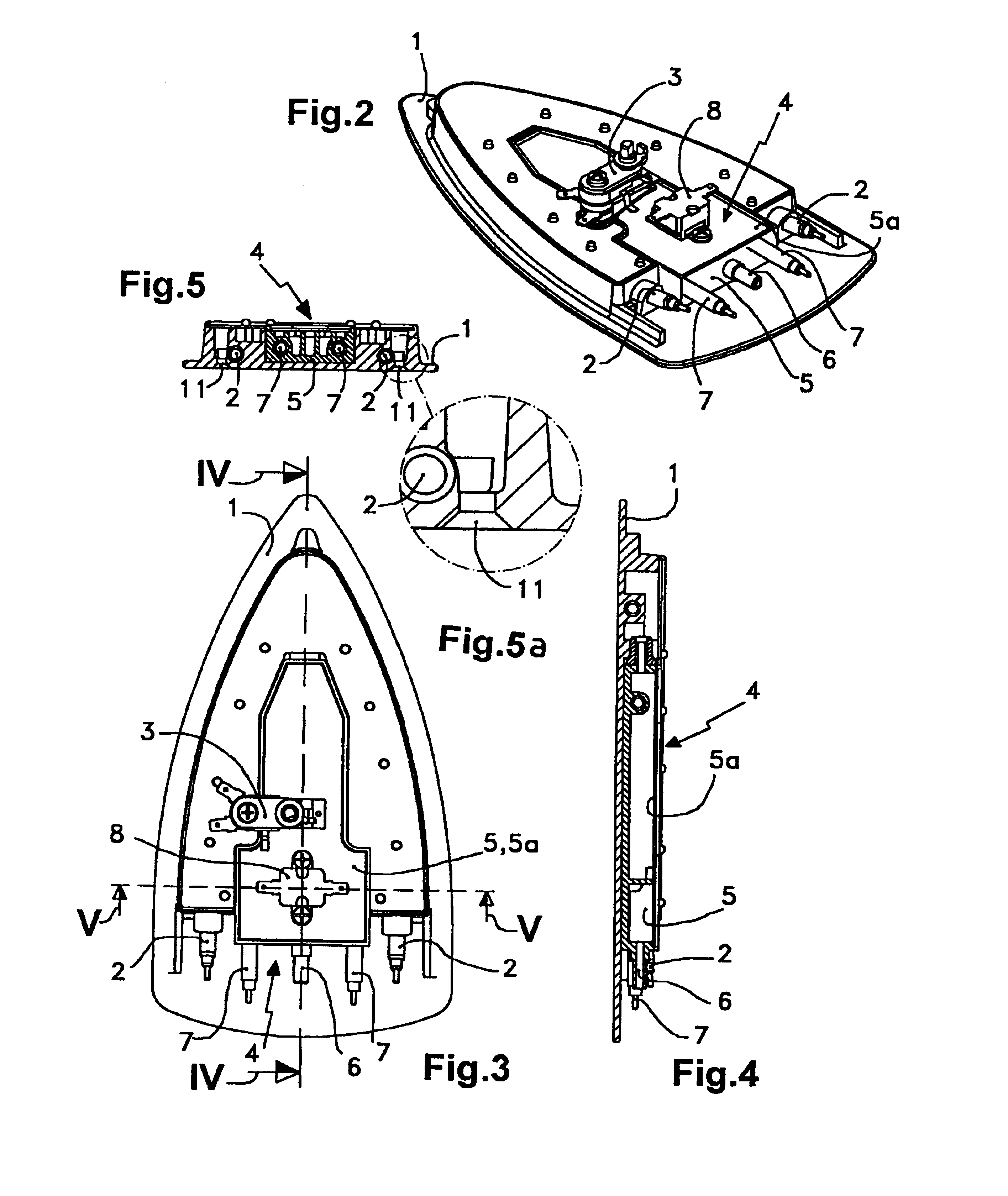Domestic steam iron with autonomous steam assembly heated by separate heating element
a technology of steam assembly and domestic iron, which is applied in the direction of hand irons, washing machines, textiles and paper, etc., can solve the problem of reducing the quality of ironing
- Summary
- Abstract
- Description
- Claims
- Application Information
AI Technical Summary
Benefits of technology
Problems solved by technology
Method used
Image
Examples
Embodiment Construction
[0054]In relation to the drawings and references enumerated above, a preferred mode of embodiment of the invention is presented in the attached sheets, particularly concerning (FIG. 1) a soleplate of a domestic seam iron (1-2) that is basically comprised of an ironing element (1) which is that which enters into contact with the item to be ironed, and a heating element (2) that heats said ironing element (1) by means of a thermostatic element (3) that regulates the ironing temperature.
[0055]According to the invention, the soleplate of domestic steam iron (1-2) foreseen presents the special feature that, independently of said assembly of ironing element (1), heating element (2) and thermostatic element (3), of incorporating an autonomous steam assembly (4) which is composed of a steam chamber (5) which has a water supply conduit (6) connected to the water reservoir of the domestic iron, and whose steam chamber (5) has a separate heating element (7) which has its own thermostat (8) whi...
PUM
 Login to View More
Login to View More Abstract
Description
Claims
Application Information
 Login to View More
Login to View More - R&D
- Intellectual Property
- Life Sciences
- Materials
- Tech Scout
- Unparalleled Data Quality
- Higher Quality Content
- 60% Fewer Hallucinations
Browse by: Latest US Patents, China's latest patents, Technical Efficacy Thesaurus, Application Domain, Technology Topic, Popular Technical Reports.
© 2025 PatSnap. All rights reserved.Legal|Privacy policy|Modern Slavery Act Transparency Statement|Sitemap|About US| Contact US: help@patsnap.com



